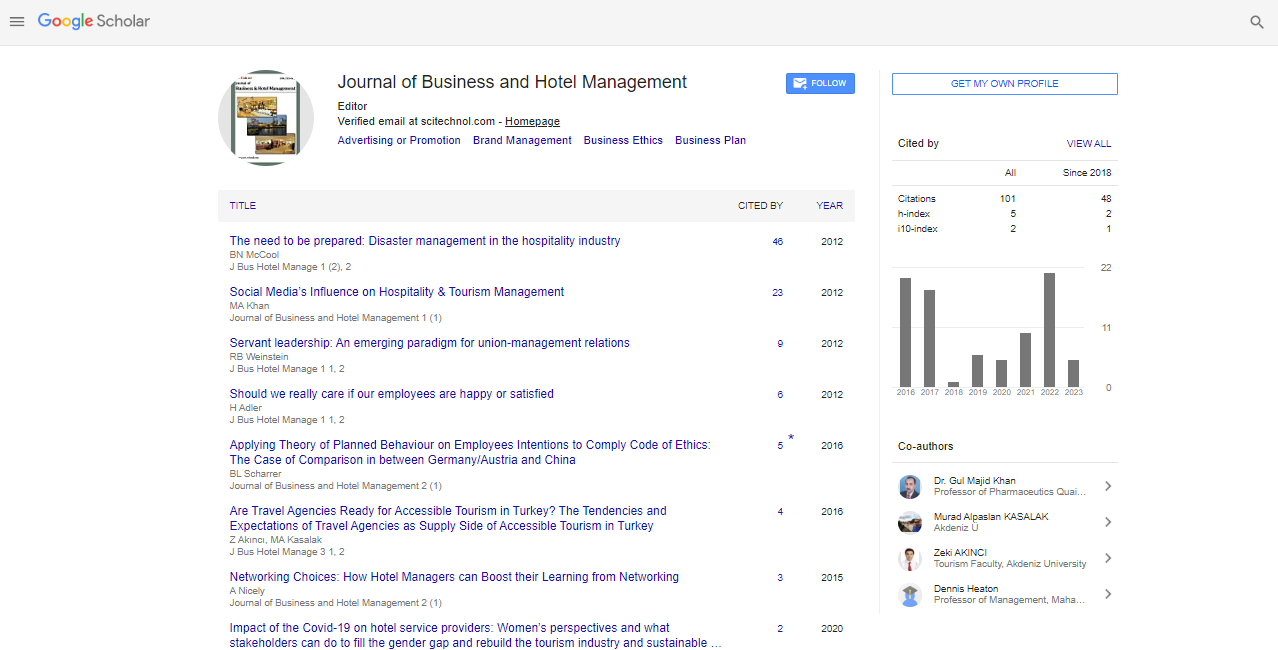Short Communication, J Bus Hotel Manage Vol: 7 Issue: 5
Artificial Intelligence-Impact on Healthcare
Dr. Bhagvanth Reddy Gunna
MBBS, FRCS(Ed), FRCS(Glas), MBA(Germany).
*Corresponding author:
Bhagvanth Reddy G, MBBS, FRCS(Ed), FRCS(Glas),
MBA(Germany)
Email: reddy.gunna@gmail.com
Abstract
Artificial intelligence is a hot topic in healthcare, sparking ongoing debate about the ethical, clinical, and financial pros and cons of relying on algorithms for patient care. It could revolutionize healthcare over the next few decades, but only if stakeholders focus on building the right data-driven foundations now.It is also poised to become a transformational force in healthcare. How will providers and patients benefit from the impact of AI-driven tools?At the recent World Medical Innovation Forum (WMIF) on Artificial Intelligence presented by Partners Healthcare, a leading researchers and clinical faculty members showcased the Twelve technologies and areas of the healthcare industry that are most likely to see a major impact from Artificial Intelligence within the next decade.Brain-computer interfaces (BCIs) - backed byArtificial Intelligence could restore those fundamental experiences to those who feared them lost forever, in Neurological diseases and Trauma
Keywords: Artificial Intelligence
Introduction
Artificial intelligence is a hot topic in healthcare, sparking ongoing debate about the ethical, clinical, and financial pros and cons of relying on algorithms for patient care. It could revolutionize healthcare over the next few decades, but only if stakeholders focus on building the right data-driven foundations now.It is also poised to become a transformational force in healthcare. How will providers and patients benefit from the impact of AI-driven tools?At the recent World Medical Innovation Forum (WMIF) on Artificial Intelligence presented by Partners Healthcare, a leading researchers and clinical faculty members showcased the Twelve technologies and areas of the healthcare industry that are most likely to see a major impact from Artificial Intelligence within the next decade.Brain-computer interfaces (BCIs) - backed byArtificial Intelligence could restore those fundamental experiences to those who feared them lost forever, in Neurological diseases and Trauma to Nervous system.Radiology Tools - Artificial Intelligence will enable the next generation of radiology toolsthat are accurate and detailed enough to replace the need for tissue samples/biopsies in some cases.Shortage - Artificial Intelligence could help mitigate the impacts of deficit of Healthcare Personnel, in Underserved and developing regions.Electron Health Recorddevelopers are now using Artificial Intelligence to create more intuitive interfaces and automate some of the routine processes that consume so much of a Doctors and Nurses time.Infection Patterns - Electronic Health Record data with Artificial Intelligence can help to Identify Infection Patterns and highlight patients at risk before they begin to show symptoms. Digital Pathology- and Artificial Intelligencecan deliver accurate and faster diagnosis with extremely large digital images can allow providers to identify minor details that may escape the human eye. Medical Devices - In the Medicine environment, Smart Devices are critical for monitoring patients in the ICU and elsewhere. Inserting Artificial intelligencealgorithms into these devices can reduce cognitive burdens for physicians while ensuring that patients receive care in as timely a manner as possible.Immune Therapy- Artificial Intelligence algorithms and their ability to synthesize highly complex datasets may be able to illuminate new options for targeting therapies to an individualâ??s unique genetic makeup. Reliable Predictor -Artificial Intelligenceanalytics have produced many successful Risk Scoring and Stratification Tools, especially when researchers employ Deep Learning techniques to identify novel connections between seemingly unrelated datasets. Wearables - Artificial Intelligence will play a significant role in extracting actionable insights from this large and varied treasure of data. Smart Phones - The quality of cell phone cameras is increasing every year and can produce images that are viable for analysis by Artificial Intelligence algorithms. In this Dermatology and Ophthalmology are early beneficiaries of this trend. Bedside Monitors -Artificial intelligencecan provide earlier warnings for conditions like Seizures or Sepsis, which often require intensive analysis of highly complex datasets. Early alerting is one of the most promising areas of development for this revolutionary approach to data analysis.
Biography
Dr Bhagvanth R Gunna is Surgeon by Profession working in Canada. He studied Medicine (MBBS) in KMC, Warangal, India and graduated in 1978. After Graduation, he was trained in Jamaica, Ireland and United Kingdom in Surgery and Surgical Specialties and obtained his FRCS from Royal College of Glasgow in 1987. After surgical training, he worked as Consultant Surgeon in Ireland for almost 5 Years till 1995. Later he returned to Hyderabad, India and worked as Laparoscopic Surgeon and Surgical Gastroenterologist at Apollo Hospitals, Jubilee Hills, Hyderabad, till 2008. In 2009, he got an offer from LG Health, NL, Canada and moved there. Presently he is working in Canada as a Laparoscopic Surgeon and Surgical Gastroenterologist. In 2001, he was awarded Fellowship (FRCS) without Examination by Royal College of Surgeons of Edinburgh, UK. He was then appointed as Examiner and Surgical Tutor for MRCS, by Royal College of Surgeons of Edinburgh. He was also Inspector for National Board of Examination and visited and Inspected several Private Healthcare facilities in India in view of granting DNB seats. He has MBA degree from Frankfurt School of Finance & Management, Germany in International Healthcare Management.
References
- AN Ramesh, C Kambhampati, JRT Monson, PJ Drew, Artificial intelligence in medicine, Ann R Coll Surg Engl 2004; 86: 334â??338 doi 10.1308/147870804290
- Jiang F, Jiang Y, Zhi H, et al, Artificial intelligence in healthcare: past, present and future, Stroke and Vascular Neurology 2017;2:doi: 10.1136/svn- 2017-000101
 Spanish
Spanish  Chinese
Chinese  Russian
Russian  German
German  French
French  Japanese
Japanese  Portuguese
Portuguese  Hindi
Hindi 